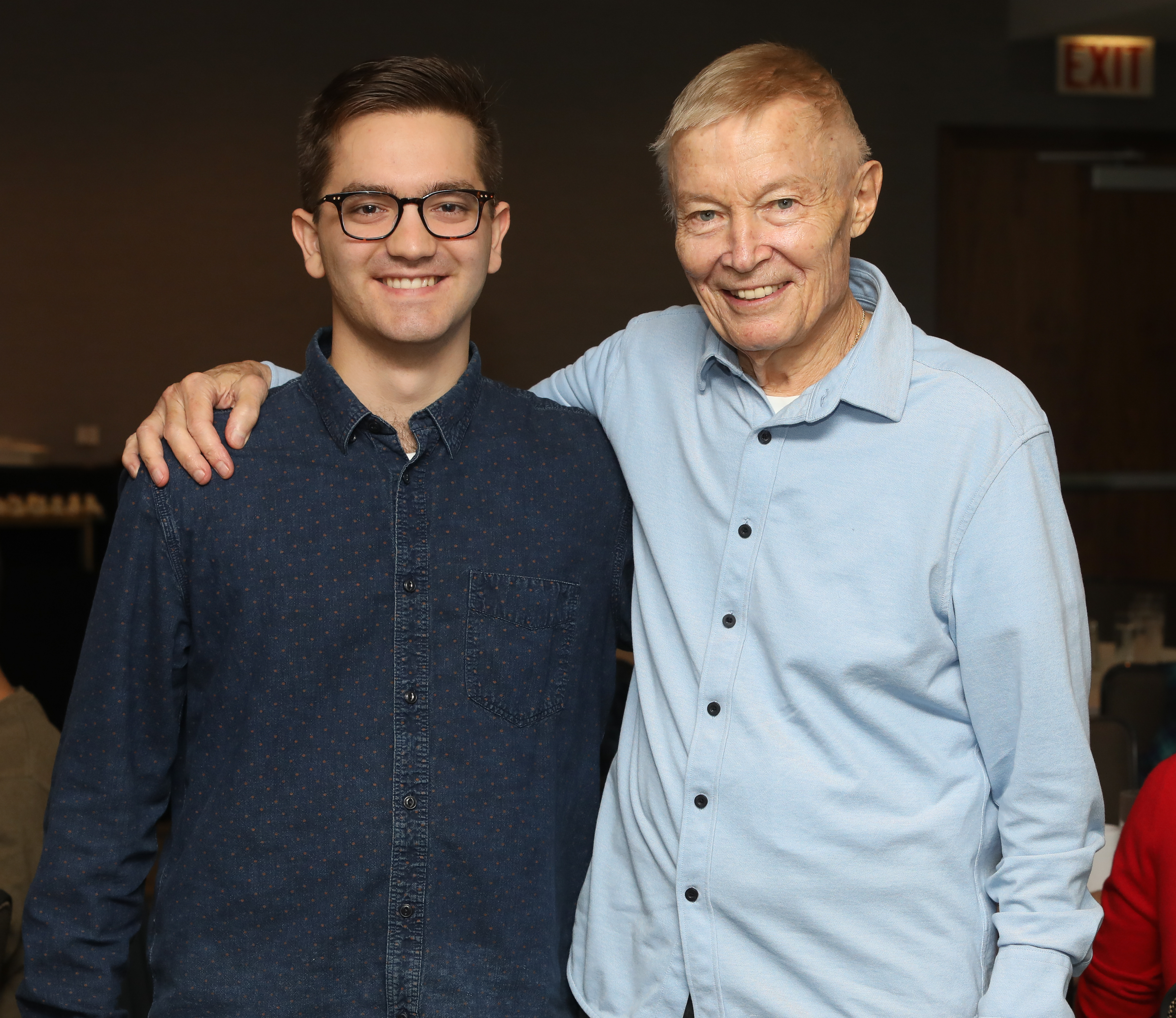My Buddy Program Experience: Alexandru Buhimschi
I knew of Alzheimer’s and dementia as neurodegenerative diseases primarily afflicting the elderly. I did not realize that there was heterogeneity in dementia progression and phenotype. I did not realize that there were dementia subtypes. Most of all, I did not know to what extent individuals with these diseases could maintain functional and fulfilling lives.
As I browsed through the extracurricular fair during the first week of medical school, the immense number of extracurricular organizations at Feinberg was overwhelming at first. One booth caught my attention. The Buddy Program table was staffed by Darby Morhardt, PhD, LCSW, who I could tell immediately brought a special level of care and attention to the program.
Although I knew fairly little about Alzheimer’s, I knew a lot about living with an illness. Having had my own health problems, I wanted to choose a medical school that would not only make me into a better clinician, but also into a better person. I know it sounds cliché, but I’ve seen firsthand physicians that practice without empathy. Despite my lack of medical knowledge, I knew that medicine was more than knowing and applying treatment algorithms. So, I saw the Buddy Program as an incredible opportunity to develop a longitudinal friendship with someone dealing with illness; an opportunity to practice empathy; an opportunity to put aside the responsibility to provide care and instead embrace the responsibility to listen.
Meeting My Mentor and Our Time Together
I think Richard and I are quite similar despite our obvious generational differences. Both of us have a unique sense of humor, which was the first of Richard’s attributes I noticed. We both don’t take ourselves very seriously and we are quick to make jokes. Richard struck me as a genuinely kind person that cares for those around him and within his community. He might have made a fine doctor in fact.

I learned that Richard had done significant work in the developing world (Pakistan, in particular), which I greatly admired. He is a prolific and thoughtful writer with a published book about his life story that he kindly gave me during our first meeting. Most of all, I was impressed by the level of attention he paid to everything around him. He was certainly someone that thought about and interpreted the world around him. I think we are similar in that way.
Richard and I met on a weekly basis, making our way through as many museums we could find in the downtown Chicago area. Although these museums were impressive in their own right, I was most excited to simply chat with Richard about his family, his life, and views on current events. I would look forward to our visits each week as a welcome break from the stresses of medical school. Although our last few meetings with the Buddy Program needed to be virtual, I enjoyed continuing to check in with one another and chatting informally much as we would have in person. Richard and I will probably continue our friendship after the official conclusion of the Buddy Program.
What I Learned from My Mentor and His Caregiver
Richard’s condition has manifested in a way such that retrieving various words during conversation presents him with some difficulty. Despite this, he has maintained an interest in reading and writing a book focused on 1920s history. I think in this way, Richard defied and challenged my expectations for what it meant to be diagnosed with dementia.
Despite his diagnosis, Richard seldom expressed any sadness regarding his condition or loss of certain cognitive abilities. Over time, as we began to grow closer, I felt more comfortable suggesting words to him if they did not come naturally. In one of our conversations, he even said that he would prefer for people to help him as he struggles for words. Having access to his perspective was a unique opportunity to see how those with dementia prefer for physicians and friends to interact with them
Most of all, my interactions taught me to treat Richard completely normally and non-judgmentally but to also offer my help in certain situations without seeming impolite or impatient. It was a fine line to learn, but one I am much better equipped to handle following the Buddy Program.
In this vein, I think it is easy for doctors to view patients on a binary scale of either healthy or sick. To me, this is a fairly unrefined view of health that fails to capture the nuances of our patients’ lived experiences.
I think Richard challenged the narrative I might have ascribed to someone managing an illness like dementia or Alzheimer’s. Instead of someone struggling to meet basic needs, I saw an individual with remarkable zest for life and experience. As someone new to Chicago, Richard ignited within me an interest in exploring and taking in Chicago’s amazing cultural sights. Without Richard, it would have been much easier for me to focus on my schoolwork without experiencing the city around me, so I am really thankful to him for helping me maintain balance throughout my first year of medical school.
My Mentor’s Impact on My Future as a Physician
As a medical trainee, I would like to think that an ability to relate to people and listen to their pain is a productive step forward. The power and utility of empathy is something Richard taught me. He continues to defy my expectations and challenge my beliefs. Richard continues to teach me that one can handle setbacks with grace. For that, I am very thankful to the Buddy Program and most of all to Richard himself.